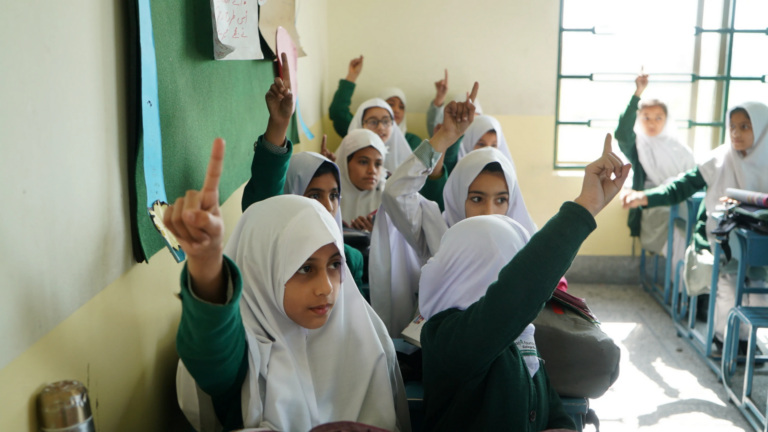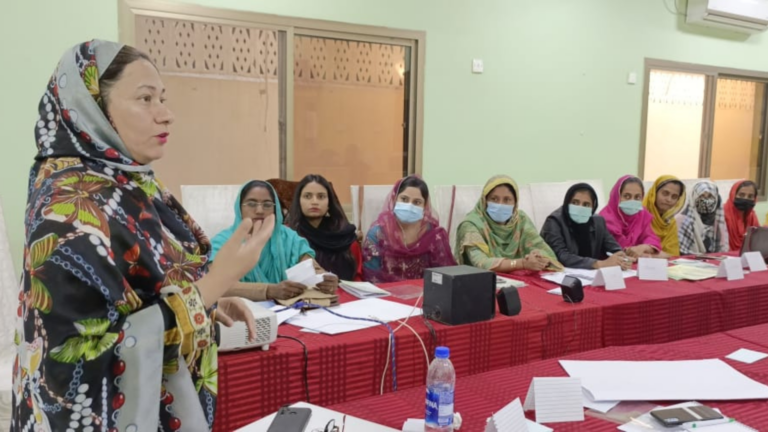Empower Her
Improving access to primary education for out-of-school girls in rural Pakistan.
Pakistan has made significant improvements to ensuring access to education, committing to providing free education for those who cannot afford it and seeking to increase primary school enrolment and graduation rates and improve the overall literacy rate. Yet with persistent socio-economic inequalities based on geography, gender and disability, an estimated 23 million children aged 5-16 do not attend school, the second highest number of out-of-school children in the world.
Research shows that each additional year of primary school increases girls’ wages by 10–20%, encourages them to marry later, and have fewer children, yet educating girls does not only benefit the girls themselves. Girls’ education drives economic development, leading to healthier communities and nations with richer, healthier and more educated children. Despite an increase in demand for girls’ education across Pakistan, girls continue to face more barriers to accessing education than boys due to a combination of factors. These barriers often intersect with the wider political, educational and socio-economic contexts. In such contexts, alternatives to formal schools, such as community-based learning and accelerated learning programmes (ALPs), are highly successful.

In 2013, READ Foundation applied the community-based accelerated learning approach in Kashmir in one of the lowest-performing districts, Neelum. At the end of the project, 92% of girls reached the minimum proficiency level in reading and mathematics, and many of these girls went on to enrol in formal government schools.
Building on the success of this project, READ Foundation is running a three-year project to improve literacy and numeracy rates by providing access to quality education for 3,600 out-of-school girls in Diamer, Gilgit-Baltistan and Tharparkar, Sindh, in Pakistan. This project has been possible thanks to generous public donations and match funding received from the UK government’s UKAID Match scheme and is being achieved through the establishment of 120 Community-Based Accelerated Learning Spaces (CBALS), the training of 120 teachers and the delivery of government-approved and culturally appropriate compact curricula.

Our Global Safeguarding and Child Protection Advisor has recently carried out in-depth safeguarding training, equipping project staff and teachers with enhanced protocols and standards for safeguarding. The session aimed to empower staff with a comprehensive knowledge base to contribute to the effective implementation of safeguarding preventive measures within the CBALS. As we approach the end of the project’s first year, the CBALS have been established, the teachers have been trained to teach the curricula, and the girls are preparing to start their package-based learning.
